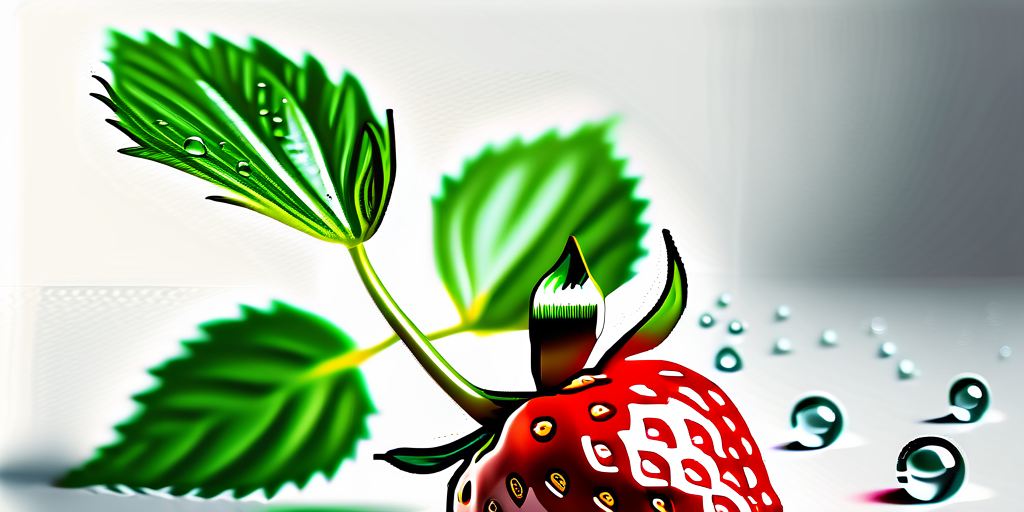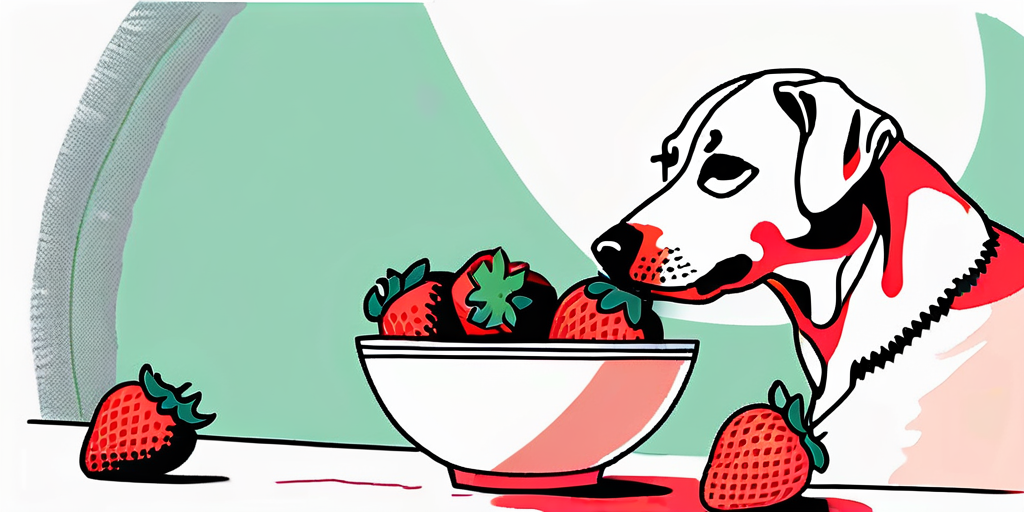Understanding a Dog’s Dietary Needs
When it comes to our furry friends, it is crucial to understand their dietary needs to ensure their overall well-being. Dogs require a balanced diet that provides them with essential nutrients to support their growth, development, and overall health. Ensuring that they have a variety of nutrients from different food sources is key to keeping them happy and healthy.

But what exactly are these essential nutrients that dogs need? Let’s take a closer look.
Essential Nutrients for Dogs
Protein is one of the most important nutrients for dogs, as it helps build and repair tissues, as well as supports the immune system. Good sources of protein for dogs include lean meats like chicken, turkey, and beef, as well as fish and eggs. It’s important to provide high-quality protein to meet their needs.
In addition to protein, dogs require carbohydrates for energy. Carbohydrates can be found in grains like rice and oats, as well as in vegetables like sweet potatoes and peas. These carbohydrates provide a steady source of energy for our canine companions.
Fats are another essential nutrient for dogs, as they play a crucial role in maintaining a healthy coat and skin. Healthy fats can be found in foods like salmon, flaxseed, and coconut oil. These fats not only keep their skin moisturized but also promote a shiny and lustrous coat.
Vitamins and minerals are also important for a dog’s overall health. Vitamins like A, D, and E are essential for their immune system, while minerals like calcium and phosphorus are necessary for strong bones and teeth. These nutrients can be found in a variety of fruits, vegetables, and supplements.
Foods Dogs Should Avoid
While dogs may enjoy a multitude of foods, there are some that should be avoided due to their potential harm. For example, chocolate, onions, grapes, and raisins are toxic to dogs and should never be given to them. These foods can cause symptoms ranging from vomiting and diarrhea to more severe complications like kidney failure.
In addition to these toxic foods, it’s also important to avoid foods high in fat, salt, and sugar. These can lead to obesity, heart problems, and other health issues in dogs. Foods like fried chicken, potato chips, and sugary treats should be kept out of their reach.
Remember, a well-balanced diet is essential for your furry friend’s overall well-being. By providing them with the right nutrients and avoiding harmful foods, you can help ensure that they live a long, healthy, and happy life.
The Nutritional Value of Strawberries
Strawberries are not only a delicious and refreshing fruit for humans, but they can also be a healthy treat for our canine companions. Packed with essential nutrients, strawberries can provide valuable vitamins and minerals that can contribute to a dog’s overall health.

When it comes to vitamins and minerals, strawberries are a powerhouse for dogs. One of the key nutrients found in strawberries is vitamin C, which plays a crucial role in boosting a dog’s immune system. By incorporating strawberries into your dog’s diet, you can help protect them from certain diseases and keep them feeling their best.
But that’s not all! Strawberries also contain manganese, another important nutrient for dogs. Manganese is responsible for promoting healthy bone development and blood clotting. By including strawberries in your dog’s meals, you can support their skeletal system and ensure proper blood clotting in case of an injury.
Vitamins and Minerals in Strawberries
Strawberries contain various vitamins beneficial to dogs, including vitamin C, which can boost their immune system and help prevent certain diseases. Additionally, strawberries contain manganese, which promotes healthy bone development and blood clotting. These nutrients, combined with others found in strawberries, make them a valuable addition to your dog’s diet.
But wait, there’s more to strawberries than just vitamins and minerals! These juicy fruits are also rich in antioxidants, which can help protect your dog’s cells from damage caused by harmful free radicals. By including strawberries in their diet, you can give your furry friend an extra layer of defense against oxidative stress.
Sugar Content in Strawberries
Although strawberries are a healthy source of many essential nutrients, they also contain natural sugars. While these sugars are not inherently harmful to dogs, it is important to monitor their overall sugar intake. Too much sugar can contribute to weight gain and dental issues in dogs. It is always best to feed strawberries to your dog in moderation.
When it comes to feeding strawberries to your dog, it’s all about finding the right balance. While the natural sugars in strawberries can provide a sweet and tasty treat, it’s important to remember that moderation is key. By keeping an eye on your dog’s overall sugar intake and incorporating strawberries as part of a well-balanced diet, you can ensure they enjoy the nutritional benefits without any negative effects.
Can Dogs Safely Eat Strawberries?
Now that we know the nutritional value of strawberries, let’s explore whether dogs can safely enjoy this delicious fruit.
Potential Health Benefits for Dogs
Strawberries can provide various health benefits to dogs when consumed in moderation. The high vitamin C content in strawberries can help boost their immune system, keeping them more resistant to infections and illnesses. The antioxidants found in strawberries can also support overall health by reducing inflammation and preventing cell damage.
Possible Risks and Precautions
While strawberries are generally safe for dogs, it is crucial to take certain precautions. Firstly, always remove the stems and leaves from strawberries, as they can be a choking hazard. Additionally, it’s important to introduce new foods gradually and monitor your dog for any adverse reactions. If you notice any digestive upset or allergic reactions, it’s best to avoid feeding strawberries to your furry friend.
Now, let’s delve deeper into the potential health benefits of strawberries for dogs. Aside from their immune-boosting properties, strawberries also contain fiber, which can aid in digestion and promote regular bowel movements. This can be particularly beneficial for dogs with sensitive stomachs or those prone to constipation.
Furthermore, strawberries are a low-calorie treat option for dogs, making them a great choice for those watching their weight. The natural sweetness of strawberries can satisfy your dog’s sweet tooth without adding excessive calories to their diet. However, it’s important to remember that moderation is key, as too many strawberries can lead to an upset stomach or diarrhea.
How to Feed Strawberries to Your Dog
If you decide to incorporate strawberries into your dog’s diet, it’s important to do so correctly to ensure their safety and enjoyment.

Strawberries, with their vibrant red color and sweet taste, can be a delightful treat for your furry friend. Not only are they a delicious snack, but they also offer several health benefits. Packed with essential vitamins and minerals, strawberries can boost your dog’s immune system and promote overall well-being.
Preparing Strawberries for Your Dog
Before feeding strawberries to your dog, make sure to wash them thoroughly to remove any pesticides or dirt residue. This step is crucial to ensure that your pup is not exposed to any harmful substances. Additionally, organic strawberries are always a great choice, as they are grown without the use of synthetic pesticides.
Once clean, slice the strawberries into bite-sized pieces, ensuring they are easily manageable for your pup. Dogs have smaller mouths compared to humans, so cutting the strawberries into smaller portions will make it easier for them to chew and digest. Remember to remove any stems or leaves to prevent choking hazards.
Recommended Serving Size
When introducing strawberries into your dog’s diet, it’s important to start with small portions. While strawberries are generally safe for dogs, it’s always best to proceed with caution, especially if it’s their first time trying this fruit. A general guideline is to limit strawberry consumption to a few slices a day for small dogs and up to a cup for larger breeds.
However, every dog is unique, and their dietary needs may vary. It’s always best to consult with your veterinarian to determine the appropriate serving size for your specific dog. They will take into consideration factors such as your dog’s size, age, and overall health to provide personalized recommendations.
Remember, moderation is key when it comes to feeding strawberries to your furry companion. While they can be a healthy addition to their diet, too much of a good thing can lead to digestive upset. Always monitor your dog’s reaction to strawberries and make adjustments accordingly.
Alternatives to Strawberries for Dogs
While strawberries can be a healthy and tasty treat, it’s always good to have a variety of options for your canine companion. Here are some other fruits that are safe for dogs to enjoy.
Other Safe Fruits for Dogs
Blueberries can be an excellent alternative to strawberries for dogs. They are low in calories and packed with antioxidants. Watermelon is also a great fruit for dogs as it is hydrating and contains essential vitamins. Lastly, bananas can provide dogs with potassium and fiber, making them a healthy and enjoyable treat.
Treats to Avoid for Dogs
While many fruits are safe for dogs, there are some treats that should be avoided altogether. For example, avocados, grapes, and cherries can be toxic to dogs and should never be given to them. It’s always important to research and consult with your veterinarian before introducing new foods to your dog’s diet.
In conclusion, strawberries can be a healthy and tasty addition to your dog’s diet when fed in moderation. They offer essential vitamins and minerals that can contribute to their overall health. However, it’s important to consider your dog’s specific dietary needs and any potential allergies or sensitivities. Always consult with your veterinarian to ensure what’s best for your furry friend. With the proper care and attention to their nutritional needs, you can keep your dog healthy and happy for years to come!
